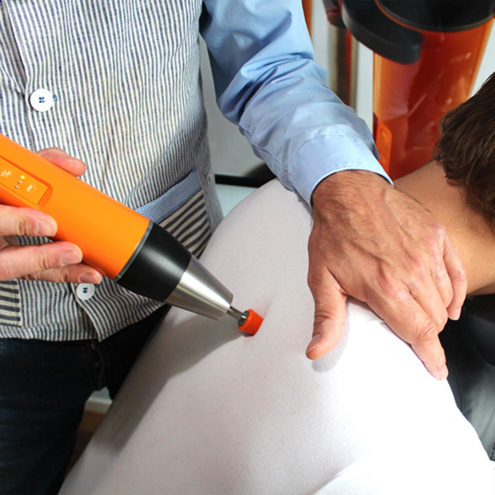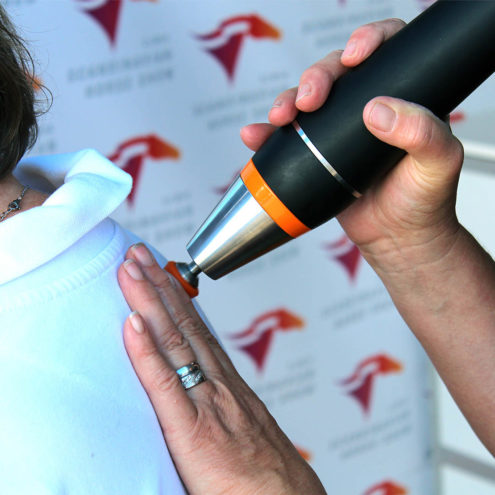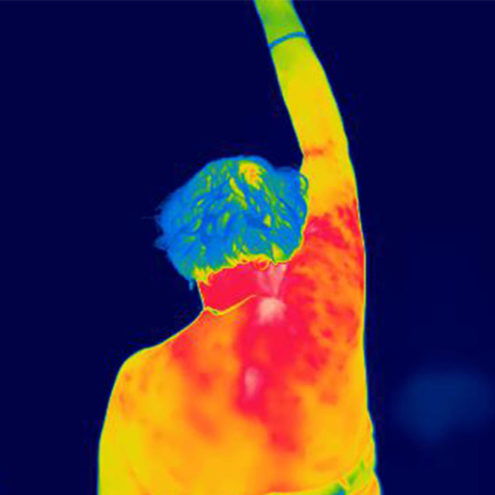Waking up with a headache

What does waking up with a headache mean?
Waking up with a headache means experiencing pain or aching in the head immediately after waking up. These headaches can vary in intensity, from mild to severe, and can affect one’s ability to start the day and perform daily activities. Morning headaches can be episodic or chronic and can be due to a variety of factors, including sleep problems, lifestyle factors and underlying medical conditions.
Common causes of waking up with a headache
There are many potential causes of waking up with a headache. Here are some of the most common:
Insomnia:
Sleep apnea: A common cause of morning headaches. Sleep apnea means that breathing stops temporarily during sleep, which can cause a lack of oxygen to the brain and lead to headaches.
Bruxism: Teeth grinding or clenching during the night can lead to muscle tension in the jaw and headaches.
Poor sleep quality: Regular awakenings or insufficient sleep can cause headaches.
Stress and anxiety:
Psychological stress and anxiety can cause tension in the neck and shoulders, which can lead to headaches. Stress can also negatively affect the quality of sleep, which can further contribute to morning headaches.
Dehydration:
Lack of fluids can lead to headaches. Not drinking enough water during the day or the night before can lead to dehydration and headaches in the morning.
Bad sleeping position:
An uncomfortable sleeping position or a poor mattress and pillow can cause muscle tension in the neck and shoulders, which can lead to headaches.
Medicines and alcohol:
Some medications and alcohol can affect sleep quality and contribute to waking headaches. Alcohol can also cause dehydration and impair sleep.
Chronic conditions:
Migraines, tension headaches and other chronic headache conditions can cause headaches on awakening.
Symptoms and diagnosis
Typical symptoms and diagnostic methods
The symptoms of morning headaches can vary depending on the underlying cause. Common symptoms include:
Head pain: The pain may be localized or diffuse and may vary in intensity. The pain may be pulsating, sharp or pressing.
Stiffness in the neck and shoulders: Muscle tension can contribute to headaches.
Fatigue: Despite having slept, you may feel tired and worn out.
Sensitivity to light and sound: This can be particularly common in migraine.
Dry mouth or throat: A sign of sleep apnea or dehydration.
Toothache or sore jaw: A sign of bruxism.
To diagnose the cause of a headache on awakening, a doctor can perform a physical examination and take a detailed medical history. The following diagnostic methods can be used:
Sleep studies: to identify sleep apnea or other sleep-related problems. A polysomnography can monitor sleep cycles, breathing, and movements during the night.
Blood tests: to rule out other medical conditions that may cause headaches, such as diabetes or electrolyte imbalances.
Imaging: X-rays, CT scans or MRIs can be used to examine the structure of the brain and neck, especially if there are signs of neurological problems.
Headache diary: Patients may be asked to keep a diary of their headache patterns, including timing, intensity, and possible triggers.
Treatment options and relief
Therapy options and measures to relieve headaches on awakening
The treatment of waking headaches depends on the underlying cause. Common treatment options include:
Medications:
Painkillers: Over-the-counter medicines such as ibuprofen or paracetamol can help relieve pain. For more severe headaches, prescription medications may be needed.
Migraine medications: Specific medications for migraines, such as triptans, may be necessary to relieve migraine headaches.
Antidepressants or anti-anxiety medications: These may help if the headache is related to stress or anxiety.
Improve sleep hygiene:
Regular sleep routine: Go to bed and wake up at the same time every day, even on weekends.
Sleeping environment: Create a dark, quiet and cool sleeping environment. Use a comfortable mattress and pillow that supports the neck and spine.
Limit screen time: Avoid screens at least one hour before bedtime to reduce exposure to blue light that can affect sleep.
Hydration:
Drink enough water during the day and avoid dehydration. Try to drink at least 1.5 to 2 liters of water daily.
Stress management:
Techniques such as meditation, yoga and deep breathing can help reduce stress and improve sleep. Developing an evening routine for relaxation can also be helpful.
Avoid alcohol and caffeine:
Reduce alcohol and caffeine intake, especially in the evening, to improve sleep quality.
Treatment of chronic conditions:
Consult a doctor to treat chronic conditions such as migraines or tension headaches with appropriate medications and therapies.
Specific measures against bruxism:
A dentist may recommend a mouthguard to use at night to prevent teeth grinding.
Prevention
Tips to prevent and reduce the risk of waking headaches
Taking preventive measures can reduce the risk of waking up with a headache:
Sleep regime: Maintain a consistent sleep and wake time, even on weekends.
Healthy diet: Eat a balanced diet and avoid large meals late at night.
Exercise: Regular physical activity can improve sleep and reduce stress. Try to get at least 30 minutes of moderate exercise most days of the week.
Ergonomic sleeping posture: Use a mattress and pillow that properly supports the neck and spine. Avoid sleeping on your stomach as this can strain your neck.
Relaxation techniques: Incorporate relaxation techniques into your daily routine to manage stress. This can include deep breathing, progressive muscle relaxation or mindfulness.
When should you seek medical help?
Indications for consulting a doctor in case of recurrent headache on awakening
It is important to seek medical help if you experience:
Persistent headaches: Headaches that do not go away or return regularly despite self-care.
Changed headache pattern: If the intensity or frequency of the headache changes in a worrying way.
Neurological symptoms: Signs such as vision changes, speech problems, paralysis or numbness may indicate a more serious underlying problem.
Severe pain: if the headache is very intense or not relieved by regular painkillers.
Headache after trauma: If the headache starts after an injury to the head or neck.
Systemic symptoms: If the headache is accompanied by fever, stiff neck, or unexplained weight loss.
Forecasting and assistance
How can we help you who often wake up with headaches?
Understanding the reasons why you wake up with a headache in the morning is the first step towards finding effective relief. Addressing both the physical and emotional aspects of this condition can help you regain control of your health and well-being.
At the FasciaClinics, we take a holistic approach to treating morning headaches. Our team of therapists use fascia therapy to relieve tension and pain. The fascia is the network of connective tissue that binds and permeates everything in our body. All cells, tissues (even bone tissue), muscles and organs contain fascia.
Fascia treatment focuses on releasing tension and adhesions in the fascia and increasing its flow. Reduced pressure and increased circulation allow cell membranes to more easily absorb nutrients and release waste products. Fascia treatment can thus promote the body’s own healing. The treatment provides a pleasant relaxation and does not hurt. It gets the whole body flowing and helps you balance your posture so that the body is evenly loaded. Tension in the neck, jaws and shoulders is reduced, relieving pain.
During a visit, we analyze the whole body to see where compensations and imbalances are and how they have spread. If there is an imbalance in the body, there is a risk that they will spread and affect other structures. That’s why it’s very important to seek help quickly as soon as you experience any symptoms.
By addressing the impact of fascia on headaches, we can help reduce their frequency and intensity. We work with you to create an individualized treatment plan that takes into account your specific needs and goals.
 Search
Search
































